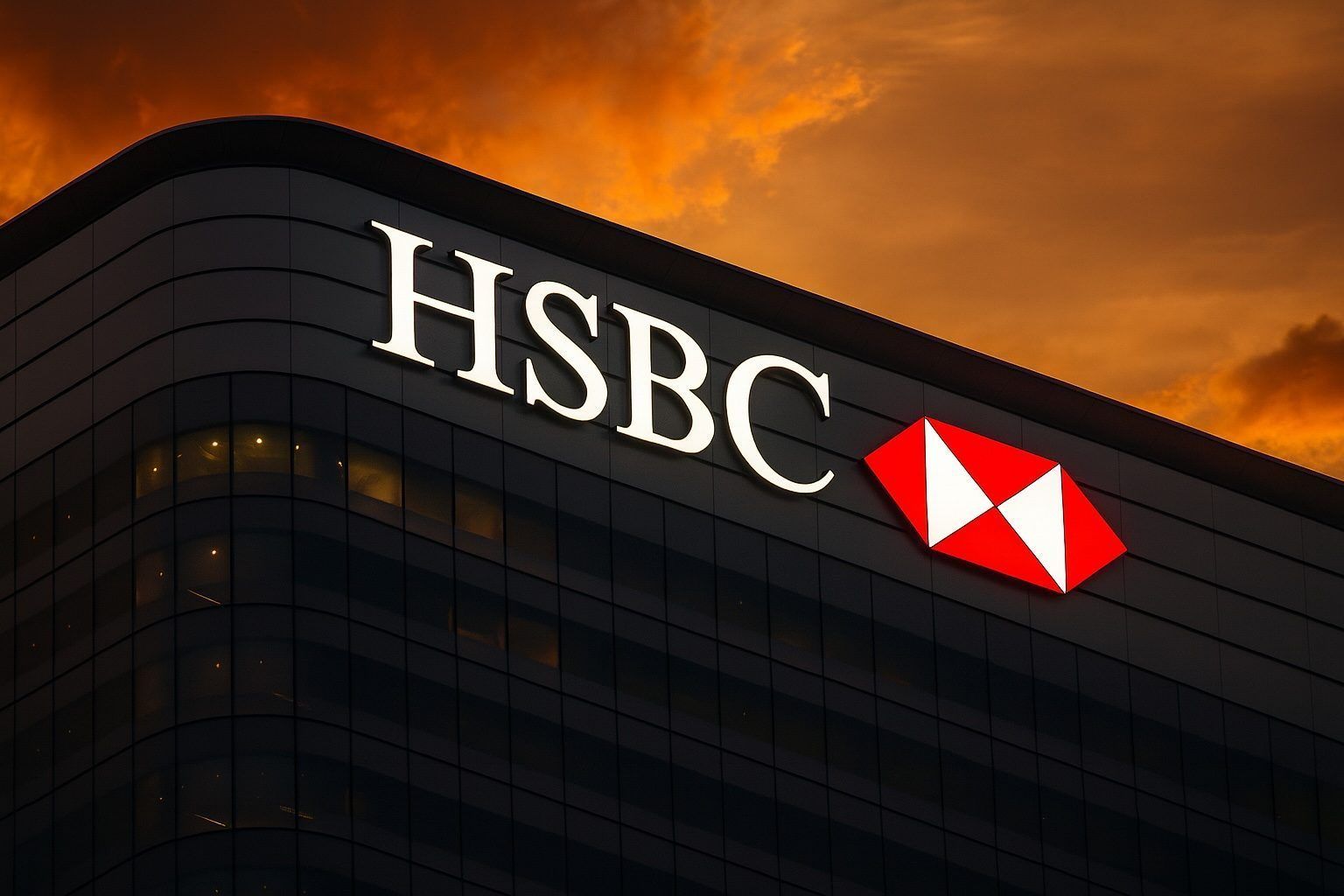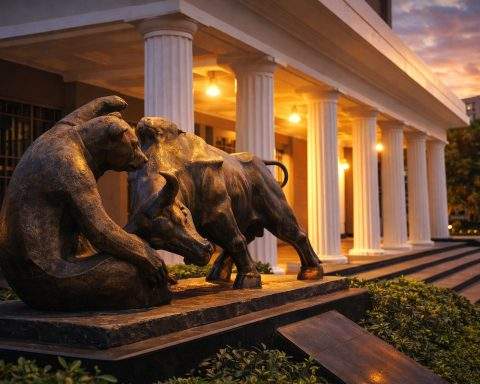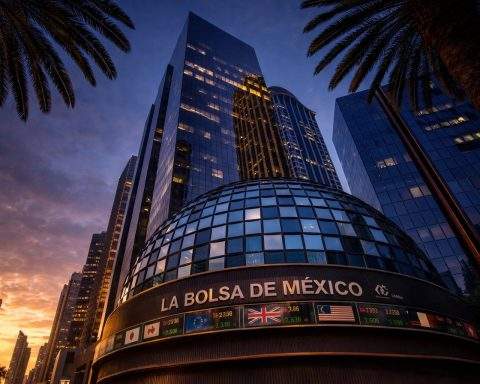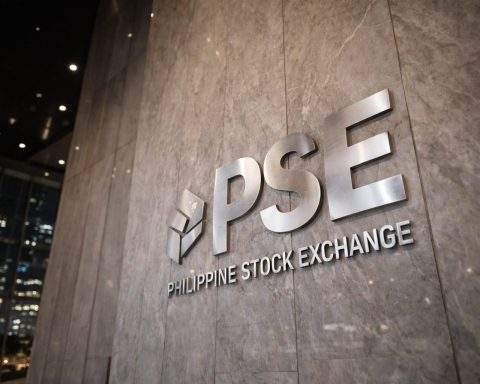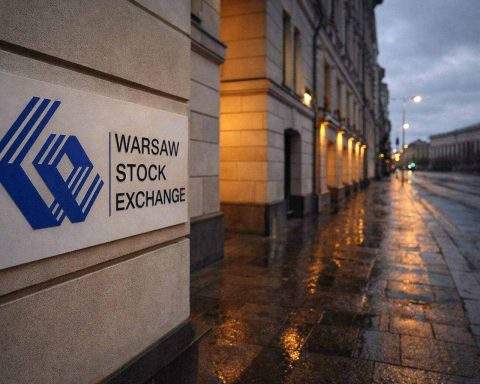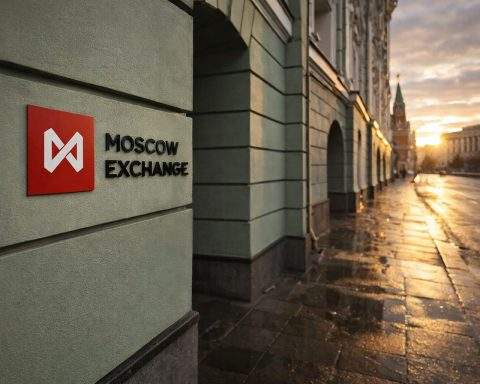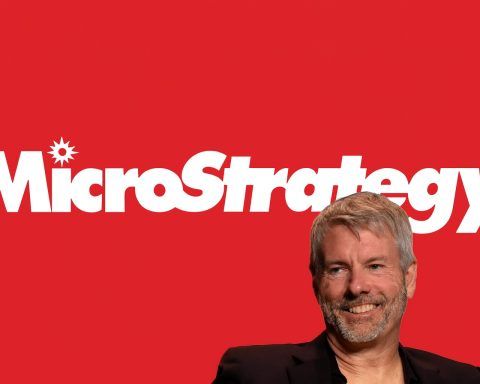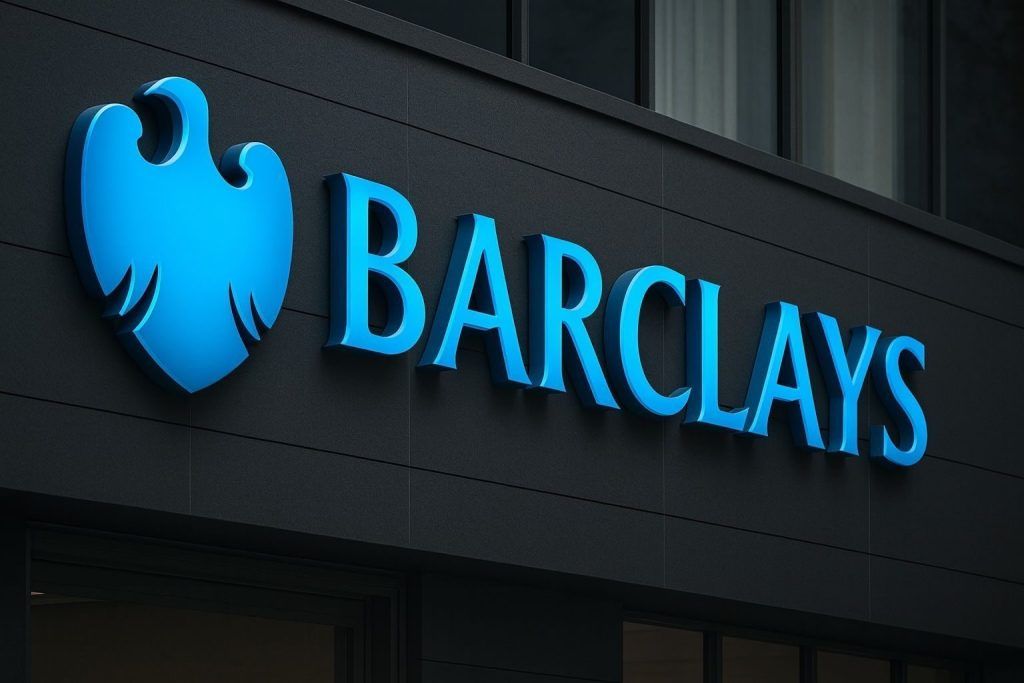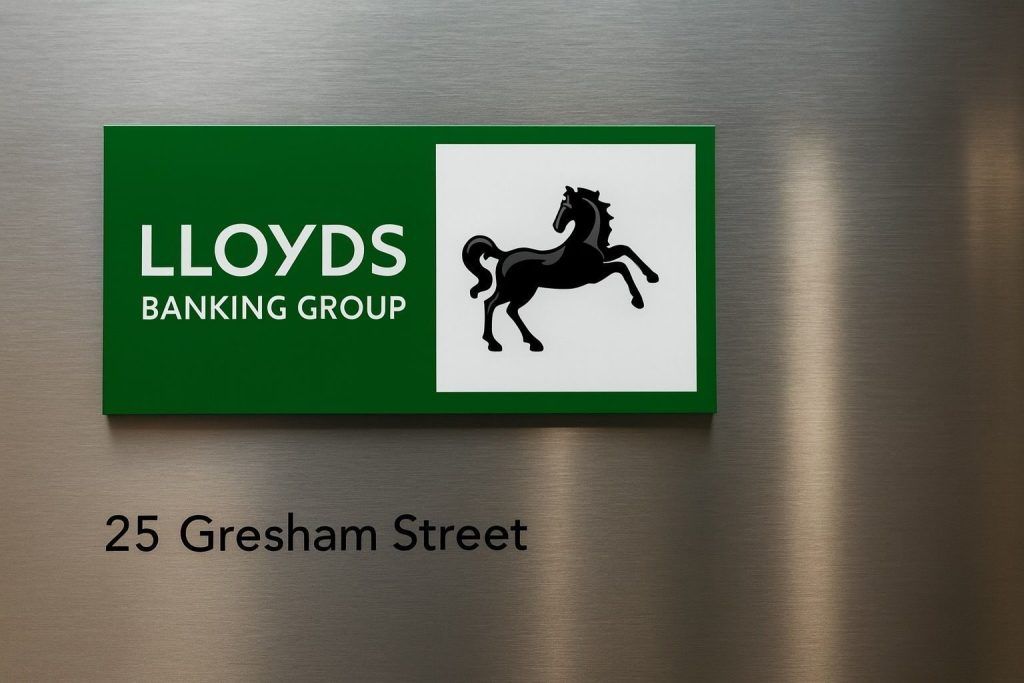London, 24 November 2025 – HSBC Holdings plc enters the final weeks of 2025 with a busy slate: a new euro benchmark bond sale, fresh macro research on gold and the US dollar, renewed interest from institutional investors and ongoing strategic repositioning around its proposed Hang Seng Bank takeover and leadership transition.
Below is a round-up of the key HSBC developments relevant to investors and market watchers today, 24 November 2025.
Euro Benchmark Bond Issue Underscores Funding Flexibility
HSBC Holdings plc is in the market with a new euro‑denominated, benchmark‑sized senior fixed‑rate note, structured as an eight‑year maturity with a seven‑year call option (often referred to as “8NC7”). The security is being issued out of the holding company and is targeted at institutional buyers in Europe and the UK. Investing.com+1
According to the preliminary terms:
- The notes are euro‑denominated senior holdco debt, intended to count towards HSBC’s long‑term funding and MREL/TLAC requirements. Investing.com
- The deal is a benchmark transaction (size not publicly specified in the term sheet but typically in the low-billion-euro range for this format). Investing.com
- A pre‑stabilisation notice filed in London gives the stabilising manager the ability to over‑allot up to 5% of the aggregate nominal amount, with a stabilisation window running from 24 November to 30 December 2025. TradingView
- Distribution is restricted to qualified investors in the EEA and professional clients/high-net-worth investors in the UK; the notes are not registered under the US Securities Act, and there is no public offer in the United States. Investing.com
For HSBC, the transaction serves several purposes at once:
- It diversifies funding away from US dollars and sterling, in line with the group’s global footprint.
- It helps term‑out liabilities ahead of potential volatility around central‑bank decisions this winter.
- It reinforces the group’s capacity to fund large strategic moves – notably the proposed HK$106 billion (US$13.6 billion) buyout of Hang Seng Bank – without relying solely on equity markets. hsbc.com+1
Gold Outlook: HSBC Expects Elevated Prices on Central-Bank and ETF Demand
Gold is back in the spotlight after a long rally, and HSBC’s latest “Think Future 2026” research argues that the metal is likely to stay elevated even after recent volatility. Republic World
Key messages from HSBC’s gold outlook:
- Gold is described as remaining a core hedge in periods of global uncertainty, continuing to attract both central‑bank and retail demand. Republic World
- HSBC estimates that gold is on track for one of its strongest years in nearly five decades, with prices up around 50%+ year‑to‑date and having hit record levels in October before a modest pullback. Republic World
- Central‑bank accumulation is a central pillar of the thesis: the share of gold in global central‑bank reserves has, by HSBC’s count, risen from roughly 13% in 2022 to about 22% by Q2 2025, even as prices surged. Republic World
- Retail investors have joined in through gold ETFs, where holdings have been trending higher since mid‑2024 as investors look for protection against inflation, geopolitical risk and concerns over the long‑term value of the US dollar. Republic World
The bank does flag two key downside risks:
- A more hawkish‑than‑expected Federal Reserve, which could push real yields higher and weigh on bullion; and
- A sharp, positive surprise in global growth, which might reduce the appeal of defensive assets. Republic World
Within HSBC’s markets businesses, a constructive gold view tends to support client demand for structured products, ETF distribution and hedging strategies, even as the bank stresses that gold’s role remains portfolio diversification rather than short‑term speculation.
FX Viewpoint: HSBC Sees the US Dollar on the Defensive
Alongside gold, HSBC’s FX team released a new “FX Viewpoint: USD – Fed unknowns” video and note dated 24 November 2025, focusing on the outlook for the US Dollar Index (DXY). HSBC UK
Highlights from the bank’s house view:
- The DXY index has moved back above 100, but HSBC believes the dollar faces downside risks rather than the start of a new up‑trend. HSBC UK
- Strategists see a real possibility of a 25 bp “insurance” cut at the December FOMC meeting, even though markets currently price only around a 40% probability. HSBC UK
- If the Fed does cut, HSBC expects modest USD weakness; if the Fed holds but signals openness to easing in early 2026, the bank sees only limited room for sustained dollar strength, given markets already price a high chance of a January cut. HSBC UK
- The upcoming appointment of the next Federal Reserve chair is flagged as a longer‑term variable: not because HSBC expects an aggressively hawkish shift, but because concerns about central‑bank independence could keep the dollar “defensive” through the transition. HSBC UK
For HSBC’s own franchise – with its deep trade‑finance and FX platforms in Asia, the UK and the Middle East – a softer dollar typically:
- Supports emerging‑market and Asian currencies,
- Encourages cross‑border capital flows, and
- Can ease pressure on borrowers with USD‑denominated debt.
At the same time, heightened FX volatility tends to boost client hedging and trading activity, which has historically been a key profit driver within HSBC’s Global Banking and Markets division.
Fresh Institutional Interest: Rockefeller Capital and Others Increase Stakes
On the equity side, the latest 13F data show renewed institutional appetite for HSBC shares. A new MarketBeat report published today (24 November) notes that Rockefeller Capital Management L.P. raised its position in HSBC by 20% in the second quarter.
According to the filing summary:
- Rockefeller now holds 46,718 HSBC ADRs, up by 7,802 shares versus the previous quarter, with a market value of about US$2.84 million at the time of filing.
- Other institutions also built positions:
- Contrarian Capital Management boosted its stake by over 400% to roughly 1.27 million shares,
- Connor Clark & Lunn increased its holdings by more than 700%, and
- Royal Bank of Canada and Bank of Montreal also added meaningfully.
- Hedge funds and other institutions now account for about 1.5% of HSBC’s share base, which is relatively low for a global mega‑cap bank but trending upward.
MarketBeat also reiterates that, based on US‑listed ADRs:
- HSBC recently reported Q3 2025 EPS of US$1.80, beating the consensus estimate of US$1.65,
- Quarterly revenue came in around US$17.9 billion, ahead of expectations, and
- The board approved a quarterly dividend of US$0.50 per ADR, or US$2.00 annualised, for a yield near 2.9% at recent prices. hsbc.com
The institutional buying is occurring even as the bank absorbs sizeable legal charges and gears up for the Hang Seng Bank transaction, suggesting that large investors are looking beyond near‑term noise toward earnings power and capital returns in 2026–27.
HSBC Share Price, Dividend and Valuation Snapshot (24 November 2025)
Two different listings give slightly different perspectives on HSBC’s value today:
- On the London Stock Exchange (LON: HSBA), analysis published this morning by DirectorsTalk places the share price around 1,041.4 pence, within a 52‑week range of 713.2p to 1,120p. Directors Talk Interviews
- On the New York Stock Exchange (NYSE: HSBC), MarketBeat reports Friday’s opening level at US$68.92, versus a 12‑month range of US$45.59–74.17, implying a market capitalisation of roughly US$238 billion.
Key metrics from these analyses include:
- Return on equity: around 9–13% depending on the measure and time period used. Directors Talk Interviews+1
- Dividend yield: roughly 4.7–4.8% on the London line according to DirectorsTalk, with a payout ratio near 68%; around 4.7–4.8% is also consistent with third‑party dividend trackers. Directors Talk Interviews
- Balance‑sheet strength: on the ADR line, MarketBeat cites a debt‑to‑equity ratio of 0.49, a current ratio of 0.92 and CET1 capital of 14.5% in the latest quarter – a level confirmed in HSBC’s own Q3 2025 earnings release. hsbc.com
DirectorsTalk also points to:
- Revenue growth of about 4.8%,
- EPS of 0.73 (local reporting basis), and
- A headline dividend yield of 4.77%, which it frames as attractive for income‑focused investors. Directors Talk Interviews
The article notes that on some data feeds the forward P/E ratio looks unusually high, reflecting quirks in how forecast earnings are captured. That underlines a key point for investors: valuation metrics should be cross‑checked against multiple sources and set in the context of HSBC’s one‑off charges and restructuring.
Important: none of these figures constitute investment advice; they are descriptive snapshots based on third‑party data.
Swiss Private Bank Raises Pay to Stem Senior Banker Exits
In wealth management, HSBC’s Swiss private bank has made headlines after reports that it is raising pay for selected staff to curb attrition.
According to Bloomberg‑sourced coverage:
- The Swiss unit has seen a number of departures in recent months, including interim head John Shipman, who left to join Barclays.
- In response, HSBC’s Swiss arm has increased compensation for certain roles, notably relationship managers and other client‑facing staff, in a bid to retain key talent.
- The bank has also asked Samir Assaf, chairman of its Middle East business and a former global head of Global Banking & Markets, to spend time in Geneva helping to stabilise and reposition the franchise.
The story matters for two reasons:
- Wealth and affluent clients are central to HSBC’s growth strategy, particularly in Asia and international hubs such as Switzerland and the UK; losing seasoned private bankers can weaken that push.
- Talent‑retention spending feeds into the broader theme of cost discipline versus growth investment, already a hot topic after HSBC booked US$1.4 billion of legal provisions and higher operating expenses in Q3 2025.
HSBC’s statement, quoted in some reports, emphasised that the group continues to “attract top talent and invest in our people”, underlining the bank’s willingness to spend selectively where it sees franchise value at risk.
Asset Management Update: ESG Bond ETF NAV
In a more routine but still relevant development, London’s Regulatory News Service today carried an update on the HSBC Global Funds ICAV – Global Aggregate Bond ESG UCITS ETF (USD share class, ticker HAGE).
The filing shows that as of the 21 November 2025 valuation date:
- Shares in issue stood at 87,000,
- Total net asset value was around US$907,223, and
- NAV per share was US$10.4279.
While small in the context of HSBC’s overall asset‑management business, this ETF is part of a broader suite of ESG‑labelled fixed‑income funds, which HSBC has been using to capture flows from institutional and retail investors looking for sustainable bond exposure.
Strategic Backdrop: Q3 2025 Results and the Hang Seng Bank Deal
Today’s incremental headlines sit against a backdrop of heavy strategic lifting by HSBC through the second half of 2025.
Q3 2025 earnings
In its official Q3 2025 release, HSBC reported:
- Reported profit before tax (PBT) of US$7.3 billion, down US$1.2 billion year‑on‑year, mainly due to US$1.4 billion of legal provisions on historical matters (including a major case in Luxembourg linked to the Madoff securities fraud).
- PBT excluding notable items on a constant‑currency basis of US$9.1 billion, up 3% versus Q3 2024, supported by higher net interest income and a strong wealth‑management performance.
- Revenue of US$17.8 billion, a 5% increase year‑on‑year, with net interest income up 15% to US$8.8 billion, helped by rising deposit volumes and structural hedging.
- Annualised RoTE of 12.3%, or 16.4% excluding notable items, still comfortably within the bank’s “mid‑teens” ambition.
- A CET1 ratio of 14.5%, only 10 basis points lower than in Q2 despite the heavy legal charge.
For the first nine months of 2025, reported PBT fell to US$23.1 billion due to the non‑recurrence of one‑off gains from past disposals and fresh impairment charges on the stake in Bank of Communications in China. But on an underlying basis, management highlighted continued growth in fee income and FX and debt‑capital‑markets revenues.
Crucially, HSBC reiterated that it still expects RoTE (excluding notable items) to be in the mid‑teens or better in 2025–27, and nudged up its guidance for 2025 banking net interest income to “US$43 billion or better”.
Hang Seng Bank privatisation proposal
On 9 October 2025, HSBC announced a proposal to privatise its Hong Kong subsidiary Hang Seng Bank, in which it already holds a 63% stake. The offer:
- Values Hang Seng at HK$290 billion (about US$37 billion) on an equity basis.
- Offers HK$155 per share for the 36.5% of shares not already owned – a 30–33% premium to the undisturbed 30‑day trading average.
- Would be executed via a court‑sanctioned scheme of arrangement under Hong Kong law.
HSBC has stressed that:
- Hang Seng’s brand, branch network and distinct customer proposition will be retained; and
- The deal reflects a long‑term commitment to Hong Kong, even as the city wrestles with property‑sector stress and slower growth.
The transaction is still subject to shareholder approval and regulatory sign‑off. Rating agencies such as Fitch see the move as strengthening strategic alignment between the two banks, while Hong Kong officials have said HSBC has pledged no layoffs as part of the integration.
The new euro benchmark bond issue announced today will sit alongside HSBC’s existing capital stack and could ultimately support overall group funding flexibility as it pursues the Hang Seng deal and other targeted acquisitions.
Governance Watch: Search for a New Group Chair
Finally, governance remains an important medium‑term theme.
Mark Tucker, HSBC’s first externally recruited chairman, stepped down on 30 September 2025, and Brendan Nelson has been serving as interim group chair since 1 October.
Reuters reported earlier this month that former UK finance minister George Osborne is among a small group of candidates being considered as Tucker’s permanent successor, alongside former Barclays finance director Naguib Kheraj and ex‑McKinsey boss Kevin Sneader. HSBC has declined to comment on specific names but confirmed that the search process is under way and that an update will be provided in due course.
For investors, the choice of chair will matter for:
- Board oversight of the Hang Seng Bank deal,
- The balance between capital returns and reinvestment, and
- The bank’s geopolitical positioning between its UK domicile and Asian profit engine.
What Today’s News Means for HSBC Investors
Pulling the strands together, the 24 November 2025 HSBC news flow paints a picture of a bank that is:
- Proactively managing its liability structure, tapping the euro market with new senior debt.
- Leaning on its global research and markets franchise to shape the conversation on gold and the US dollar, with constructive but nuanced outlooks for both.
- Attracting incremental institutional capital, even as analysts remain only moderately bullish overall.
- Willing to spend to retain key talent in its Swiss private bank while keeping a close eye on costs.
- Still digesting large legal provisions and strategic shifts, including the Hang Seng Bank proposal and ongoing board‑level succession.
For shareholders and prospective investors, the key questions over the coming quarters will be:
- Can HSBC execute the Hang Seng transaction while maintaining capital ratios and dividend payouts at attractive levels?
- Will the bank’s constructive stance on gold and a softer USD translate into stronger trading and wealth‑management income in 2026?
- How will the new chair shape HSBC’s capital‑allocation and geographic priorities?
As always, anyone considering an investment in HSBC should look beyond today’s headlines and:
- Review the full Q3 2025 earnings materials,
- Consider how HSBC fits within their overall portfolio, risk tolerance and time horizon, and
- Seek independent financial advice where appropriate.
This article is for information purposes only and does not constitute investment, tax or legal advice.
